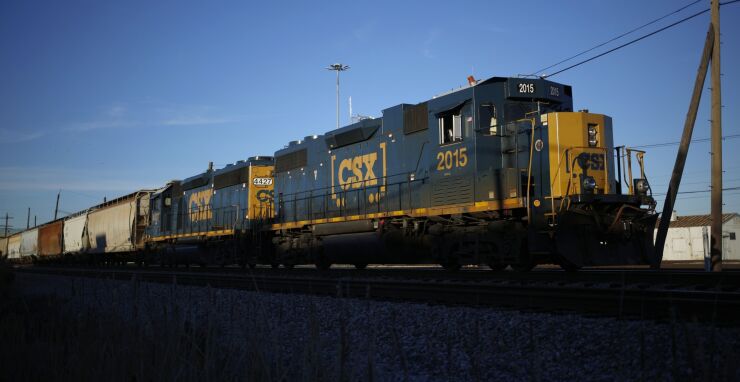An appellate court has found a South Carolina tax policy impermissibly discriminated against CSX because it values the railroad company's land at a higher rate than other commercial property.
The ruling marks the latest decision in a six-year legal battle between the state and the Florida-based freight railroad company, and the second ruling in the case handed down by the U.S. Court of Appeals for the Fourth Circuit.

In overturning a district court ruling for a second time, Judge Stephanie Thacker wrote for the panel that the South Carolina Real Property Valuation Reform Act impermissibly discriminated against railroads in violation of the Railroad Revitalization and Regulatory Reform Act of 1976 because it excluded CSX's land from a cap on property assessments applied to other properties.
The three-judge appellate panel also rejected a concurrent cross appeal by the state that argued the tax applied to railroad properties is not a tax, and that the district court erred by using the wrong comparison to evaluate CSX's claim of discrimination.
"We reject both of the state’s arguments and agree with [CSX] that South Carolina failed to justify its discriminatory tax," Thacker wrote on behalf of herself and Judges Pamela Harris and David Novak. "We therefore reverse the district court’s decision."
The case was also remanded to the district court.
CSX said it does not comment on litigation matters.
"Since this is still pending litigation, we can’t comment," said Robert Kittle, spokesman for the South Carolina Attorney General's Office, whose attorneys are defending the case for the state Department of Revenue.
DOR said it had no comment, and wouldn't respond to questions about what liability the state may face if the appellate ruling leads the district court to a similar finding.
CSX said in court filings that for the 2014 tax year its property tax assessment was $40.73 million. The company estimated that its assessment that year would have been $33.55 million, if it had the benefit of the state's 15% cap on the increase in property assessments.
The appraised value on CSX's property was $263.68 million in 2007. By 2012, it had increased to $398 million, or 50.85%, filings said.
South Carolina could ultimately face a financial liability in the case, at a time when the state is struggling to understand the impact of the new coronavirus on the state's finances.
On May 18, Gov. Henry McMaster signed a continuing resolution to keep the state government running at current levels until incoming revenues can be better projected, which will allow lawmakers to pass a fiscal 2021 spending plan in the fall. The fiscal year begins on July 1.
State tax collections have been difficult to project, in part, because the DOR moved the due date for income tax returns and payments to July 15 from April 15, matching the IRS income tax deadline.
South Carolina's general obligation bonds are rated triple-A by Fitch Ratings, Moody's Investors Service, and S&P Global Ratings. All three recently affirmed their ratings and stable outlooks.
S&P said Thursday the state has well-defined financial management policies with budget surpluses regularly during periods of positive economic growth, with a demonstrated commitment to reserve balances.
"These factors should help the state weather near-term budget challenges related to the COVID-19-induced recession," said S&P analyst Sussan Corson. "However, prolonged effects of the recession on state revenue as well as delays in adopting a fiscal 2021 budget could make future budget adjustments more challenging."
South Carolina's unemployment rate soared to a record 12.1% in April, up from 3.2% in March, the Department of Employment and Workforce announced Friday.
“While South Carolina’s high unemployment rate is shocking compared to the record lows we recently enjoyed, I am sure that this news isn’t a surprise to anyone," said Dan Ellzey, executive director of DEW. "As the unemployment rate has increased dramatically to 12.1%, it is significantly less than the U.S. rate of 14.7%."





